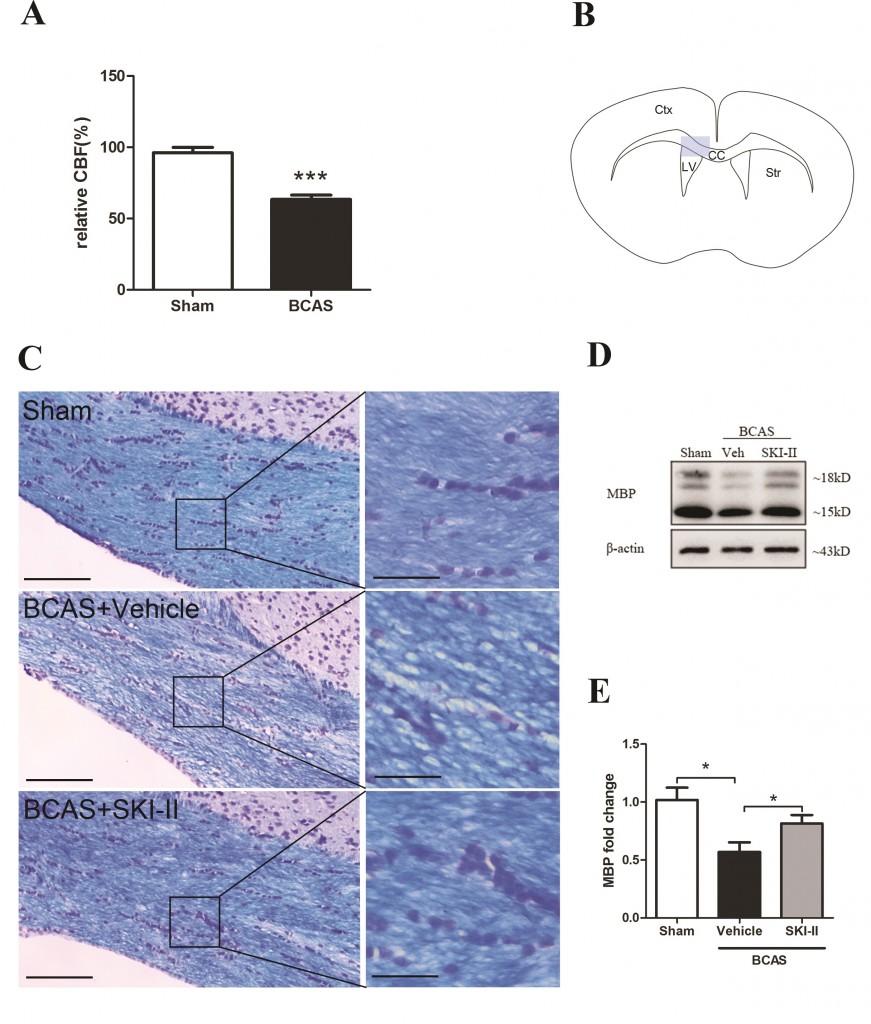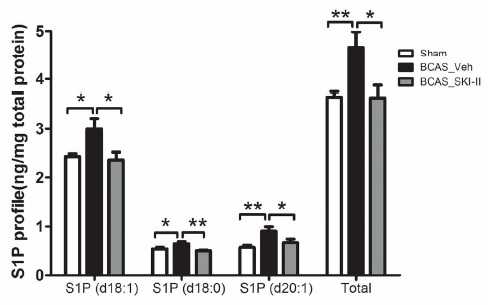Hot Off the Press: Sphingosine kinase inhibition ameliorates chronic hypoperfusion-induced white matter lesions.

White matter lesions (WML) are thought to contribute to vascular cognitive impairment in elderly patients. Growing evidence show that failure of myelin formation arising from the disruption of oligodendrocyte progenitor cell (OPC) differentiation is a cause of chronic vascular white matter damage. The sphingosine kinase (SphK)/sphingosine-1-phosphate (S1P) signaling pathway regulates oligodendroglia differentiation and function, and is known to be altered in hypoxia. In this study, we measured SphK, S1P as well as markers of WML, hypoxia and OPC (NG2) in a mouse bilateral carotid artery stenosis (BCAS) model of chronic cerebral hypoperfusion.  Our results indicated that BCAS induced hypoxia inducible factor (HIF)-1α, Sphk2, S1P, and NG2 up-regulation together with accumulation of WML. In contrast, BCAS mice treated with the SphK inhibitor, SKI-II, showed partial reversal of SphK2, S1P and NG2 elevation and amelioration of WML. In an in vitro model of hypoxia, SKI-II reversed the suppression of OPC differentiation. Our study suggests a mechanism for hypoperfusion-associated WML involving HIF-1α-SphK2-S1P-mediated disruption of OPC differentiation, and proposes the SphK signaling pathway as a potential therapeutic target for white matter disease.
Our results indicated that BCAS induced hypoxia inducible factor (HIF)-1α, Sphk2, S1P, and NG2 up-regulation together with accumulation of WML. In contrast, BCAS mice treated with the SphK inhibitor, SKI-II, showed partial reversal of SphK2, S1P and NG2 elevation and amelioration of WML. In an in vitro model of hypoxia, SKI-II reversed the suppression of OPC differentiation. Our study suggests a mechanism for hypoperfusion-associated WML involving HIF-1α-SphK2-S1P-mediated disruption of OPC differentiation, and proposes the SphK signaling pathway as a potential therapeutic target for white matter disease.
Reference
Yang Y, Torta F, Arai K, Wenk MR, Herr DR, Wong PT, Lai MK (This paper).
